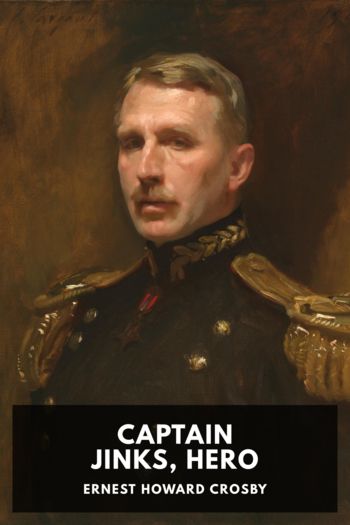What Doesn't Kill Us--A McKenzie Novel, David Housewright [best young adult book series .txt] 📗

- Author: David Housewright
Book online «What Doesn't Kill Us--A McKenzie Novel, David Housewright [best young adult book series .txt] 📗». Author David Housewright
Again, I stopped and went “Hmm…”
For a woman of her age and background to be nearly erased from the internet required effort.
Which brought me to the fifth line in the profile that fired my imagination—“her brother Porter.”
“Porter King,” I said aloud.
I Googled the name. Unlike his sister, Porter was everywhere. Mostly, though, his name popped up in his capacity as director of marketing for KTech, Inc., a Golden Valley tech company that provided “practical artificial intelligence” to the business world. The company’s website claimed KTech “unifies problem solving, learning, and memory capacity” with its reasoning engines and humanlike memory systems.
Okay, this is where I became distracted. Instead of sticking with the problem at hand, I started reading about the company. Basically, KTech’s mission in life was to eliminate the biggest drawback of using artificial intelligence—for all of its advantages, AI simply cannot emulate the creativity and reasoning ability of the human brain. An example that was used, someone says “I dropped a lead weight on top of a glass table and it shattered.” The human brain would know immediately that it was the glass that shattered and not the lead weight because we understand the world we live in and how things work. AI would not. It only knows what it’s taught and who’s going to teach an AI that lead is harder than glass? Another example: “I’ll be done in a second.” Because we also understand how language is used, most people would know that in this case “a second” meant “very soon”; that it wasn’t supposed to indicate a precise measurement of time. An AI unit would take the phrase literally.
KTech, though, promised its clients to provide AI and automation software that would overcome this confusion. It even promised the automotive industry that it would not only teach driverless vehicles the rules of the road, but the unwritten rules as well, such as staying in the right-hand lane on the freeway when driving at the posted speed limit.
I didn’t know if I believed them or not, but somebody surely must have because KTech was valued at $8.1 billion according to Twin Cities Business. Or not. Which brought me back to Porter King.
According to TCB:
KTech lost 5.2 percent of its stock price on the second day of volatile trading as investors reacted to the unexpected absence of Charles King, the company’s founder and CEO, at the company’s annual meeting Tuesday.
KTech directors and executive staff scrambled Thursday to put concerned investors and clients at ease.
“The man has a bad case of the flu, ” said King’s brother Porter King, Director of Marketing. “He’ll be fine in a few days. We know people were disappointed that he was unable to attend the annual meeting. They would have been more disappointed, though, if they had caught his virus.”
It was Porter King who had grabbed the mic at the meeting held Tuesday in the ballroom of the Marquette Hotel in downtown Minneapolis and at once beamed gung-ho optimism and bullishness for the company’s future. Yet his buoyant attitude and Paul Bunyon–like plaid shirt and jeans weren’t enough to calm the anxious crowd.
“People hear flu and they immediately think coronavirus,” said Martin Brandon, 42, a banker working in South St. Paul. “Charles King is more than just the CEO,” said Steve Zibell, 77, a retired lawyer from Shoreview. “He is KTech. I don’t know if this company has a plan to move forward without him or even if it could.”
“Wow,” I said aloud. Charles K. of Orono was Charles King, often referred to as King Charles by detractors and supporters alike. “He couldn’t possibly be Dave Deese’s half brother, could he?” I continued surfing and discovered that Charles King was a helluva businessman and not the least bit media-shy:
CHARLES KING ANNOUNCES PLAN TO SYNC OUR BRAINS WITH ARTIFICIAL INTELLIGENCE
CHARLES KING WARNS THAT ADVANCED AI WILL SOON MANIPULATE SOCIAL MEDIA
KING CHARLES’S SPAT WITH THE SEC IS OVER BUT NOT FORGOTTEN
THE BILLIONAIRE WHOSE COMPANY MAKES ARTIFICIAL INTELLIGENCE SYSTEMS FOR VEHICLES AND ROCKETS BLASTS WHAT HE CALLS “DUMB TECHNOLOGY”
CHARLES KING’S TWEETS MATTER. JUST ASK THE SEC
KTECH’S MARKETING STRATEGY PROVES IT’S TIME FOR CEOS TO GET SOCIAL
KTECH IPO GENERATES OVER $6.3 BILLION FOR AI SOFTWARE COMPANY
CHARLES KING BUYS AI START-UP, CLAIMS “ARTIFICIAL INTELLIGENCE ISN’T THE FUTURE, IT’S HERE ALREADY”
CHARLES KING SELLS REALMONEY TO ONLINE RETAIL GIANT
REALMONEY, CHARLES KING’S ONLINE PAYMENT SYSTEM, APPROACHES PAYPAL NUMBERS
MINNEAPOLIS INVESTMENT BANKER LAUNCHES MONEY TRANSFER SERVICE
King’s origin story was well documented. He graduated summa cum laude from the University of Minnesota with a degree in economics and went to work as an investment banker for one of the country’s more recognized financial institutions. He left the bank, evidently on good terms, because it gave him a loan to help establish RealMoney, a company that supported online money transfers and served as an electronic alternative to credit cards, checks, and money orders. RealMoney soon became big enough to cause PayPal to look over its shoulder if not challenge it outright. He then sold the company for the proverbial undisclosed amount of cash and bought Palmer, Inc., which he quickly renamed and turned into a leading player in the field of artificial intelligence.
Only not everything was sunshine, lollipops, and rainbows in King’s world. A week ago he missed a court-ordered meeting with members of the U.S. Securities and Exchange Commission. Last fall, King had sent out a barrage of tweets that implied that he was actively pursuing funding to take KTech private. He later said that he was merely venting his frustration with the company’s board of directors. The subsequent swings in KTech’s stock price, however, caused the SEC to object, claiming the tweets were false and misleading, that they transmitted inaccurate “material” information to KTech shareholders, and that King’s conduct was reckless. King settled the dispute by promising that in the future he would receive





Comments (0)